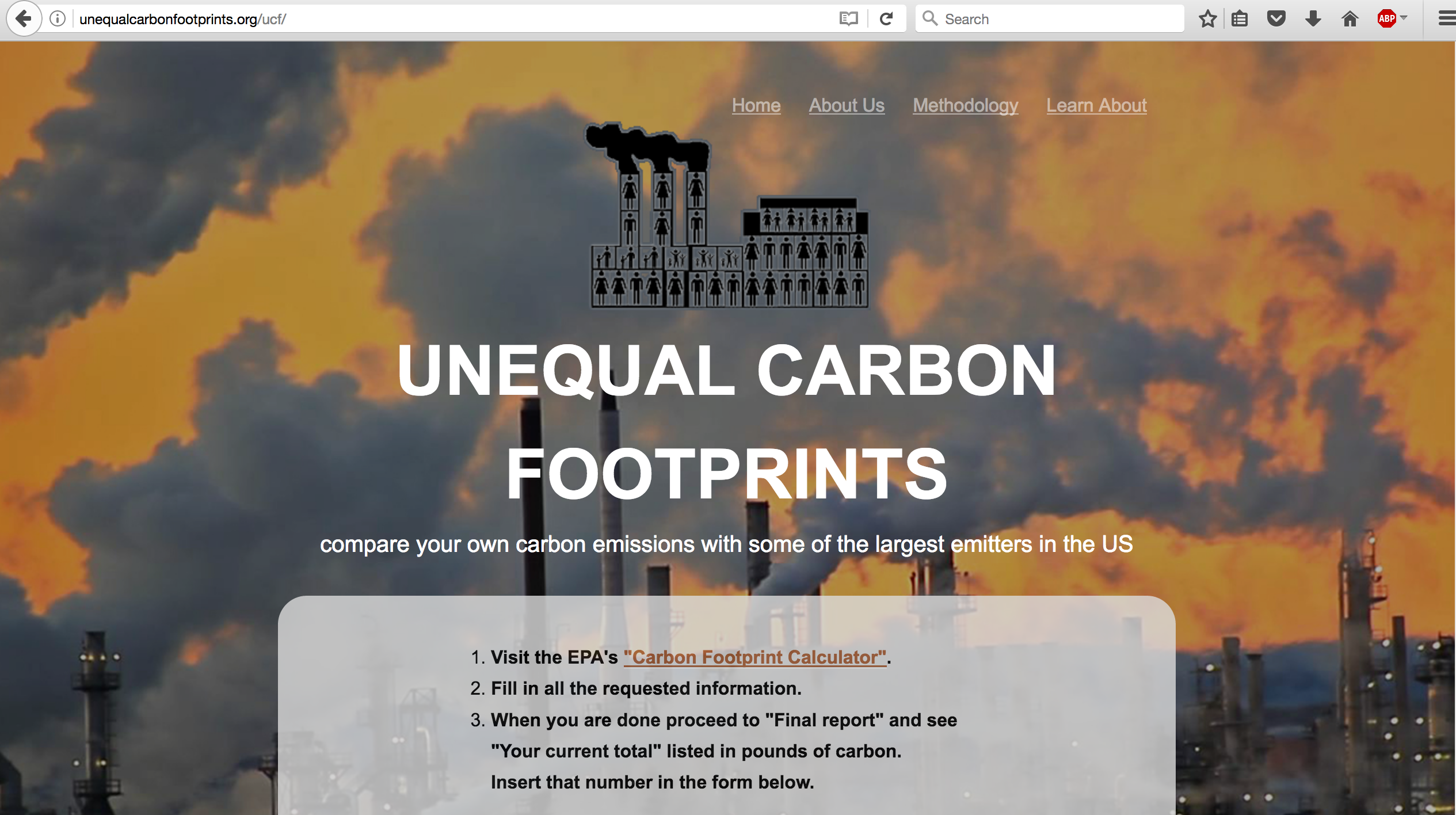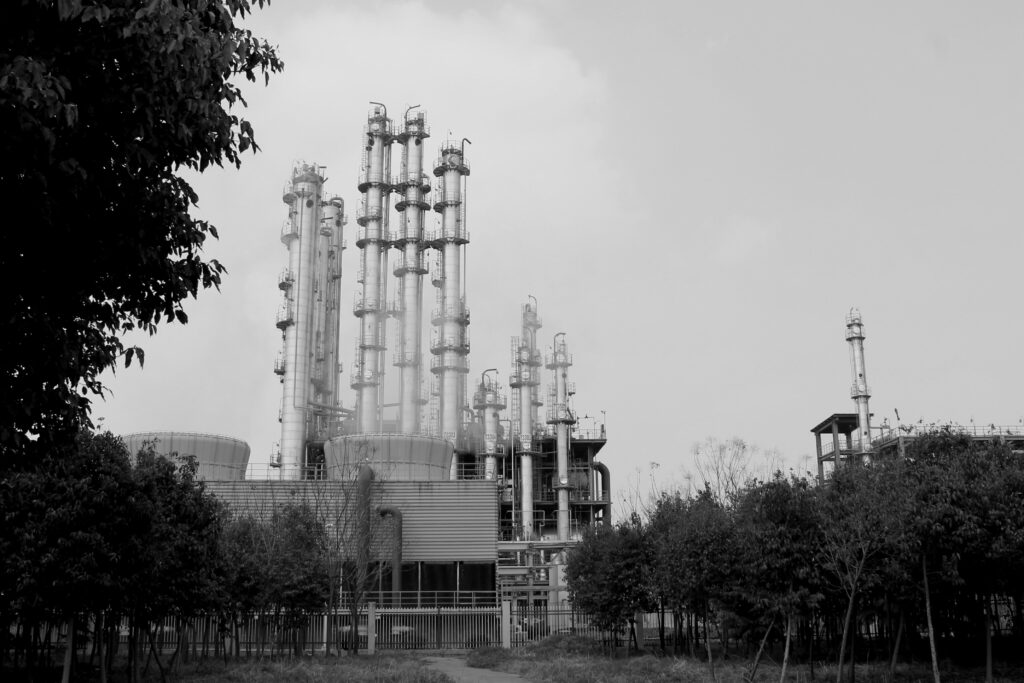Matthew T. Huber, Associate Professor, Department of Geography, Syracuse University
Are you worried about your carbon footprint? Perhaps you have a long commute to work via car. You had a recent year of heavy air travel. You guiltily enjoy meat. It is hard wired into the politics of climate change that when we get into a car and turn the ignition the emissions coming out from the tailpipe are ours, and ours alone. Yet, this vision of individualized carbon footprints actually internalizes a particular theory of power in the economy. Essentially, it assumes consumers drive the economy with their choices. Drawing from neoclassical economics, it is consumer sovereignty, and demand, that shapes decisions over what is produced. In this narrative, climate politics focuses responsibility on a class of rich affluent consumers who make “irresponsible” ecological choices. Thus, one can appear to present a progressive critique of unequal carbon footprints. Kevin Ummel, for example, shows that, “The top 10% of U.S. polluters [households] are responsible for nearly 25% of emissions.” He explains his method (and I would add his politics) as such: “The goal is to trace emissions back to the household consumption choices that ultimately led to their production.” The atmosphere of emissions is seen as millions of particles that can all be traced back to one atomized agent – the consumer and his/her footprint. Thus, in this vision, the ultimate villain is a greedy consumer: the prototypical example might be the suburbanite Hummer driver. Scaled up to the globe, it is clear it is the “rich countries” (i.e. the countries filled with rich consumers) that are responsible with their “lifestyles.”
Any given emission is not owned by an individual, but rather is a product of a web of social relations that make the moment of combustion possible.
Nevertheless, if we drop the neoclassical economic theory this narrative falls apart. The consumer who combusts energy to power their “lifestyle” is not the only actor involved in that particular belch of carbon dioxide. In truth, any given emission is not owned by an individual, but rather is a product of a web of social relations that make the moment of combustion possible. Take our wealthy, gluttonous Hummer driver. Yes, they purchased the gasoline and the Hummer, but private-for-profit corporations sold them the fuel and the car (not to mention all the corporate actors involved in financing, processing and distributing the commodities). These actors are the ones who actually profit from the Hummer driver’s “choices” (whereas, the Hummer driver merely uses these commodities for their own needs or enjoyment). It seems reasonable to place the bulk of responsibility for these emissions on the actors who garner monetary profit from their consumption – and not on the ones merely using the commodities to reproduce their lives. In other words, if an emission is a web of social relations we must trace those relations back to the guiding logic of capitalism: accumulation and profit. Each emission has users and profiteers, and we should place the bulk of the blame on the latter.
Moreover, by focusing only on the driver’s “lifestyle” and consumption choices, we ignore the heart of the matter: how did this person become so wealthy in the first place? For that answer, we need to go beyond this person’s lifestyle and ask what this person does for “work”. Perhaps they spend their time speculating on oil futures making millions on the continuation of a fossil fuel commodity system. Doesn’t that entail a more significant carbon footprint? Isn’t it odd that there is a whole part of the economy – the private for-profit control over work and production – that is deemed out of bounds when considering climate responsibility? It is not odd if you assume consumers are the ones driving this world of private-for-profit production.
The entire carbon footprint perspective ignores this side of the economy – production. Only in the realm of “social reproduction” (or consumption) are we free to make choices.
Thus, only in this realm should we be held accountable. There is a whole laundry list of efforts to “solve” climate change by focusing only on that realm of exchange and consumption. If we are emitting too much carbon, it is because there is no price for it. To lower emissions, we must focus on individual consumer choices. However, consumption and market exchange only represents a thin surface of our economy and its ecological consequences. 150 years ago, Karl Marx argued that the secret to profit, or what he called surplus value, laid in analyzing the “hidden abode” of production. We need a similar project to understand climate accountability in our carbon-based society. Of course, the most obvious producers of climate change are the fossil fuel producers themselves. A recent study suggests a mere 100 companies are responsible for 71% of emissions since 1988 (in this case, it is important to remember that half of total historical emissions since the industrial revolution have come since that year of 1988).
Yet, fossil fuel companies are not the only ones profiting off carbon emissions. Energy-intensive industries like steel, chemicals, cement, and aluminum consume ungodly amounts of fossil fuels to power and materially feed their production. The cement industry alone is responsible for 5% of global carbon emissions. Fertilizer uses natural gas as a source of hydrogen to combine with atmospheric nitrogen to form ammonia (NH3). When they extract that hydrogen from methane (CH4) carbon dioxide is the main byproduct. A fertilizer plant I visited in southern Louisiana claimed to consume a staggering 9% of natural gas consumption in the entire state (a state that already hosts an enormous industry of natural gas consuming chemical factories). This single fertilizer plant has the highest carbon emissions in the entire chemical sector of the United States.

In order to illustrate the profound inequality of carbon responsibility I set up a website called “Unequalcarbonfootrprints.org.” Individuals can calculate their own household carbon footprint on the EPA website and submit it on the site (non-US users can get their footprint in pounds from other websites). The form spits out how many of your individual carbon footprints it would take to equal a high emission power plant, refinery, steel plant, cement plant, and ammonia fertilizer plant. The average per capita carbon footprint in the United States is 37,000 pounds/year. You would need to add up about 1 million of these individuals to equal an electric power plant; 320,000 to equal a steel plant, 104,000 to equal a fertilizer plant – and so on. Thus, even if we think “consumers” of fossil fuels are the problem, the biggest consumers are actually “producers” that dwarf household-level consumption.
The goal of this website is to direct attention away from individual consumption and toward a politics of who controls and profits from material production in our society. We are often told that responsibility for climate change is diffuse – making the politics of changing millions of individual behaviors appear impossible. Yet, a production-centered politics would reveal how concentrated responsibility actually is. This makes the politics much simpler though perhaps no less difficult. The goal must be focused on stopping a relative few very powerful corporations from emitting carbon. This would entail requiring actual changes in how stuff is produced in our society. This is a politics of what Chris Hayes called “abolition”, Karl Marx might call “expropriation”, and Christian Parenti calls it “euthanization”; at the very least, we might call it “strong regulation.” In all cases, the needed program is a far cry from the politics of “carbon taxes” and “emissions trading” whose goal is to provide “flexibility” to corporate actors and let markets solve the problem.
What is clearly needed is a confrontational struggle against the power of what Andreas Malm calls “fossil capital.” It will not be easy.
The power of fossil capital is all too happy to watch us obsess over our individual lifestyle choices while the world burns. A recent study has the audacity to place the blame on having too many children (do you have more than one child? If so, shame on you! I kid). As difficult as the struggle against fossil capital will be, we need to start by combating an entrenched ideology deep within ourselves. It is an ideology that believes politics and social change can be achieved through the marketplace of individualized choices. It is an ideology that believes the economy itself is driven by the power of those individual consumers. Once we start to tear down this ideology, we can build a more collective and confrontational climate politics.
